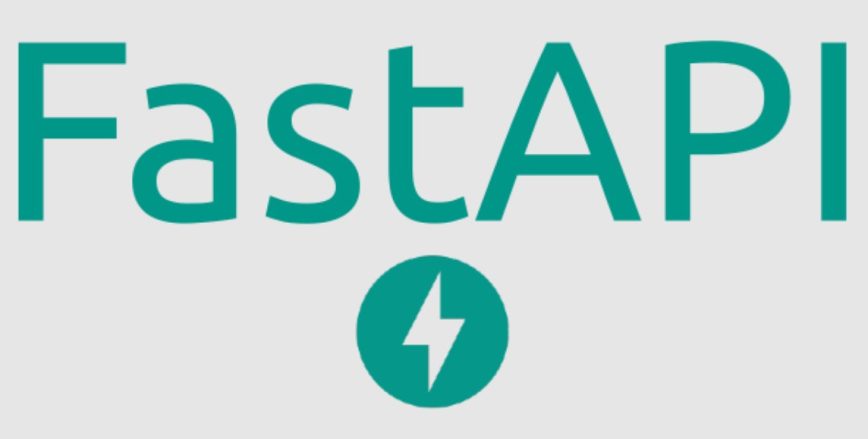FastAPI is a modern, high-performance web framework for building APIs in Python. It combines the ease of use and simplicity of Python with the speed and efficiency of asynchronous programming. In this article, we will explore the features, benefits, and best practices of FastAPI, along with real-world use cases and comparisons with other frameworks.
1. Introduction to FastAPI
FastAPI is an open-source framework that leverages the latest features of Python to enable developers to build APIs quickly and efficiently. It is based on the ASGI (Asynchronous Server Gateway Interface) specification, which allows for high-performance asynchronous code execution. FastAPI is built on top of Starlette, a lightweight ASGI framework, and Pydantic, a library for data validation and serialization.
2. Benefits of FastAPI
FastAPI offers several advantages over other web frameworks. Firstly, it provides a highly efficient and scalable runtime, making it suitable for handling high-traffic applications. Its asynchronous architecture allows for concurrent processing, resulting in improved performance. Additionally, FastAPI automatically generates interactive API documentation, reducing the time and effort required for documentation tasks.
3. Getting Started with FastAPI
To start using FastAPI, you need to set up a Python environment and install the necessary dependencies. FastAPI can be installed using pip, the Python package manager. Once installed, you can create a new FastAPI project and configure the basic settings. FastAPI provides a simple and intuitive syntax for defining routes, request and response models, and handling API endpoints.
4. Building APIs with FastAPI
FastAPI makes it easy to build APIs with minimal code and effort. It supports various HTTP methods like GET, POST, PUT, and DELETE, allowing you to define endpoints for different operations. You can also validate incoming request data using Pydantic models, ensuring data integrity and reducing error-prone code. FastAPI’s automatic serialization and deserialization capabilities simplify data handling and improve API performance.
5. FastAPI vs. Other Frameworks
FastAPI stands out among other Python web frameworks due to its exceptional performance and productivity. When compared to frameworks like Flask and Django, FastAPI offers better performance, thanks to its asynchronous nature and efficient code execution. It also provides comprehensive auto-generated API documentation and built-in support for modern web standards, making it an attractive choice for developers.
6. Performance and Scalability of FastAPI
By leveraging Python’s asynchronous programming capabilities, FastAPI achieves impressive performance benchmarks. It can handle a large number of requests simultaneously, ensuring low response times and efficient resource utilization. FastAPI’s ability to work with asynchronous libraries and frameworks make it ideal for building real-time applications, chat systems, and APIs that require high throughput.
7. Security and Authentication with FastAPI
It prioritizes security and provides robust features for authentication and authorization. It supports various authentication methods, such as OAuth2, JWT (JSON Web Tokens), and session-based authentication. These features enable developers to build secure APIs and protect sensitive data. It’s integration with popular authentication libraries simplifies the implementation of secure authentication mechanisms.
8. Database Integration with FastAPI
It seamlessly integrates with popular databases, allowing developers to efficiently store and retrieve data. It supports asynchronous database drivers, making it suitable for working with databases that support asynchronous operations. FastAPI’s built-in support for ORMs (Object-Relational Mappers) like SQLAlchemy enables developers to interact with databases using Python objects, reducing the complexity of database operations.
9. Deployment and Production Readiness
It provides straightforward deployment options for production environments. It can be deployed using ASGI servers such as Uvicorn or Hypercorn. Additionally, FastAPI supports containerization using tools like Docker, enabling easy deployment and scalability. Its compatibility with cloud platforms like AWS, Azure, and Google Cloud simplifies the process of deploying FastAPI applications in a production-ready manner.
10. Best Practices for Development
To maximize the benefits of FastAPI, it is essential to follow best practices during development. This includes utilizing FastAPI’s input validation and serialization features, organizing code into modular components, writing comprehensive tests, and utilizing appropriate error-handling mechanisms. Adhering to these best practices ensures maintainability, scalability, and performance optimization throughout the development process.
11. Real-World Use Cases
It has gained popularity among developers for a wide range of applications. It is commonly used in building RESTful APIs, microservices architectures, and web applications requiring high performance and scalability. FastAPI’s ability to handle real-time communication using WebSocket connections makes it suitable for chat applications, real-time analytics systems, and collaborative platforms.
FAQs (Frequently Asked Questions)
FAQ #1: Is FastAPI suitable for small projects?
Yes, it can be used for small projects as well as large-scale applications. Its scalability and performance make it adaptable to projects of varying sizes.
FAQ #2: Can FastAPI be used with other Python frameworks?
Yes, it can be used alongside other Python frameworks. It can be integrated with existing frameworks like Flask or Django to add high-performance API functionality.
FAQ #3: Does FastAPI support WebSocket connections?
Yes, it has built-in support for WebSocket connections, allowing real-time bidirectional communication between clients and servers.
FAQ #4: Is FastAPI suitable for microservices architecture?
Absolutely! FastAPI’s lightweight and asynchronous nature makes it an excellent choice for building microservices that need to handle a high volume of requests.
FAQ #5: How does FastAPI handle errors and exceptions?
It provides robust error handling and exception management. It automatically generates detailed error responses and allows for custom exception handling to ensure proper handling of errors and exceptions in API development.
Remember, it offers a powerful and efficient solution for building APIs in Python. Its performance, scalability, and extensive feature set make it an excellent choice for your next project. Get started with it today and unlock the potential of high-performance API development.
com Domain Registration | Buy a .com Domain Name Today
Search The Domain Name You Want com Domain Registration – The internet has become an
-
Best Ransomware Detection Techniques
22 May 2023 -
What is Drupal used for?
22 May 2023 -
Is PrestaShop a CMS or Framework?
22 May 2023







